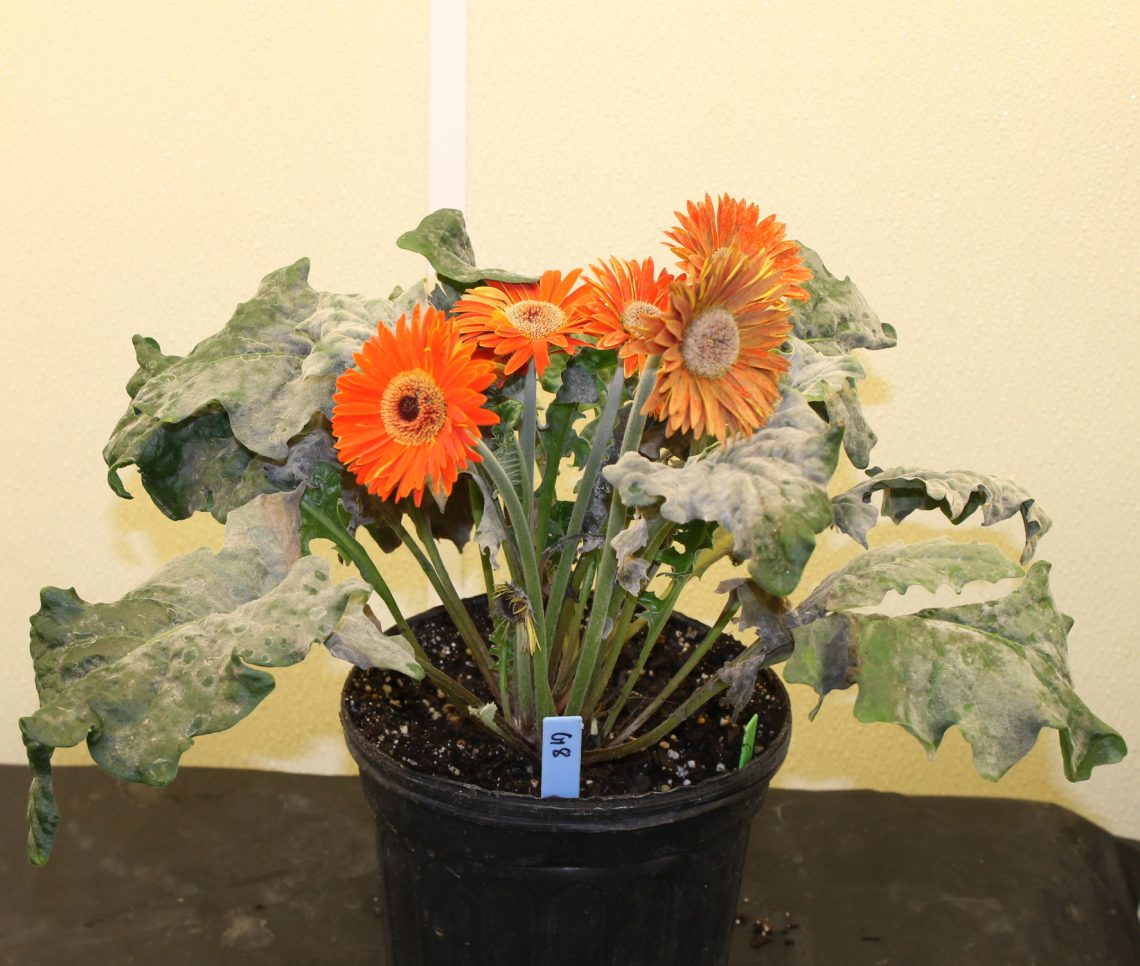Powdery mildew is the most common and damaging disease for gerbera crops. Growers often have to apply fungicides to control powdery mildew, which leads to significant increases in production costs.
The lack of disease-resistant gerbera plants has been a major limiting factor for crop production.
American Floral Endowment’s latest research report, Powdery Mildew Resistance in Transgenic Gerbera Plants, focused on increasing the plants’ resistance to powdery mildew through gene transference.
Researchers Dr. Zhanao Deng, Zhonglin Mou and Natalia A. Peres of the University of Florida have concluded through this research that powdery mildew sensitivity can be overcome by transferring defense-related genes from non-crop plants to crop plants.
Results have shown that genes from other plants can be transferred into gerbera crops to increase their resistance to powdery mildew.
Overall, the experiments revealed that regenerated plants had few mildew symptoms and better mildew resistance than the non-transformed plants. Some transformed plants even maintained healthier leaves than non-transformed plants. Results from the study demonstrate that powdery mildew resistance can be obtained in gerbera and that breeders can incorporate this information into breeding programs.
This information can be incorporated into breeding programs, and can help breeders manage diseases more effectively and control production costs. The study also offers the potential to develop disease-resistant varieties in other floriculture crops and for other diseases.












